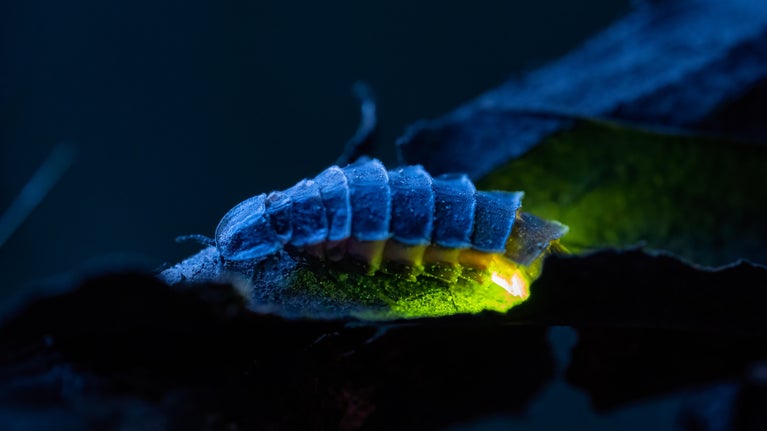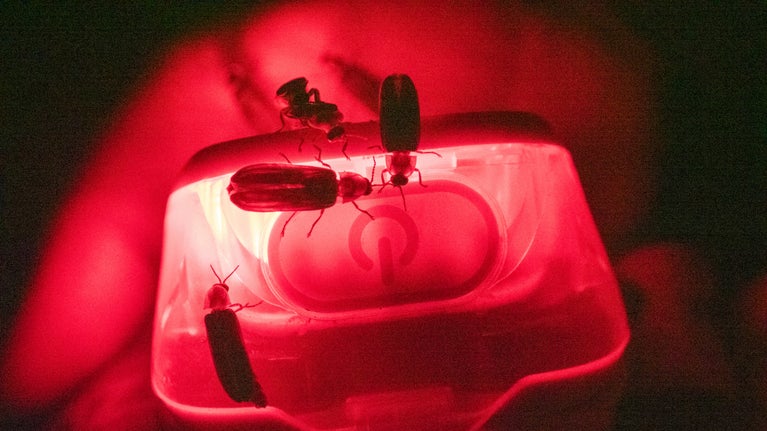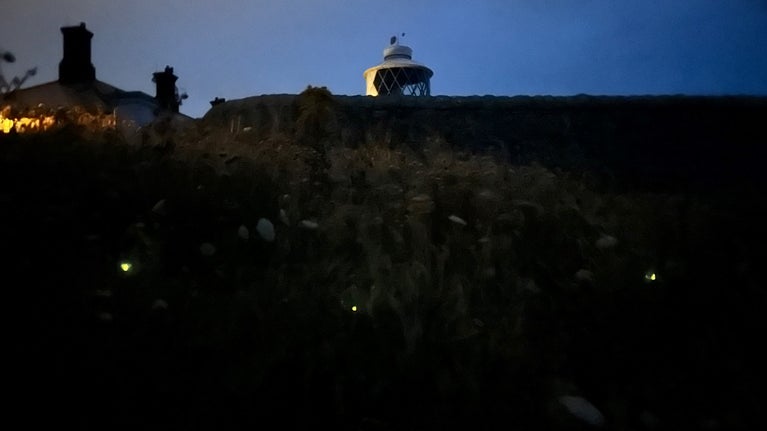Glowing report for Weston Farm
- Published:
- 24 October 2024

Few things are more magical than the sight of glow-worms lighting up our hedgerows on summer evenings. And thanks to the help of volunteers, we can see that numbers of these enigmatic creatures are growing in some areas of Purbeck.
In the second year of glow-worm monitoring, volunteers walked the same transects as in 2023. Overall, they counted 186 glow-worms this year, as opposed to just 53 in 2023. The highest counts in one evening were recorded around Weston Farm, Worth Matravers, an area managed for nature recovery by the National Trust.
Glow-worms are a type of beetle, not a worm. They are nocturnal, living on grassland, woodland edges, heaths, verges and hedgerows. They need a mix of short and long grass and scrub to complete all their lifecycle.

Michelle Brown, ecologist for the National Trust, said:
“We started glow-worm monitoring in 2023, as it’s crucial to get the data to show how glow-worms are faring, year on year. This will help guide our management on the sites we care for, and also help us establish whether and where it might be feasible to reintroduce glow-worms in other locations.
“The use of pesticides has a detrimental effect on glow-worms and their prey. They are also affected by light pollution and changes in land-use. So, if we have glow-worms in the landscape, it can be used as an indicator of a healthy ecosystem.”
Survey results
- In 2023, a total of 53 glow-worms (47 females and 6 males) were recorded.
- In 2024, a total of 186 glow-worms (115 females, 69 males and 2 larvae) were recorded.
- The highest peak counts of 24 males and 20 females were both recorded in the Weston Farm area, Worth Matravers.

How the surveys are undertaken
The surveys were carried out by volunteers from the Purbeck Natural History Forum. They were allocated set transects which were monitored twice during the peak period of glow-worm activity (July and August). Surveys were undertaken in calm, warm and dry conditions between10pm and midnight.
The volunteers walked the transects to record the number glowing females and larvae. They didn’t count on the return walk to avoid repeat counting.
To record the males, they set non-lethal red-light traps. These are left for 15 minutes, then the number of males on the traps was recorded.
Glow-worm facts
Glow-worms have long captured the imagination of writers, poets and artists. But apart from their magical quality, they also have a fascinating lifecycle:
- Both the females and larvae are flightless and give off a yellow-green glow (bioluminescence)
- The males are winged and capable of flying short distances in search of mates.
- Adult glow-worms don’t have any mouth parts with which to eat. They only live for around two weeks.
- The larvae of glow-worms eat voraciously. They feed on snails by paralysing them with toxins then injecting digestive juices that turn the snails into a slimy soup! The larvae live for two years until turning into adults.
If you are interested in helping with wildlife monitoring – whether insects, birds, mammals or plants – have a look on the Purbeck Natural History Forum website.
